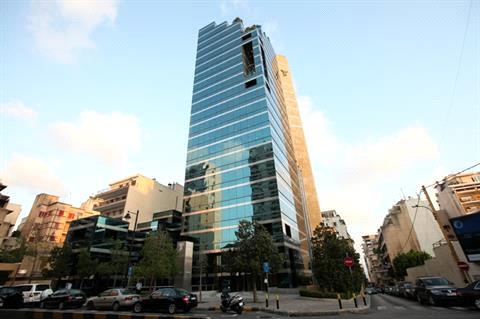Ammon News - BEIRUT (The Daily Star) - Net profits of the seven Lebanese banks operating in Syria have grown around 591 percent to 13.1 billion Syrian pounds, but experts dismissed the rise as merely due to valuation of foreign currencies to the pound. The surge in net income is chiefly due to sharp increases in unrealized net foreign exchange gains from 3.7 billion Syrian pounds in the first half of 2012 to 31.4 billion in same period in 2013, according to data compiled by Byblos Bank.
Excluding gains from foreign exchange, the seven banks would switch into a loss of 18.3 billion Syrian pounds, the bank said in its weekly newsletter.
“There is no an actual improvement and the only reason that there is such an increase in profits is the fluctuation of foreign exchange rates and the fact that these banks report their profits in Syrian pounds,” Nassib Ghobril, chief economist at Byblos Bank told The Daily Star.
Joe Sarrouh, adviser to the chairman of Fransabank, echoed Ghobril, adding that the surge was due to the fact that foreign banks in Syria were required to have 40 percent of their capital in foreign currencies.
Sarrouh dismissed the possibility of any banks selling foreign reserves to realize profits amid the current situation in Syria.
The Fransabank official also said that the currency valuation profits were not being included in consolidated results of banks.
The aggregate net interest income of the seven banks was down 31.2 percent to 2.3 billion Syrian pounds, in the first half of 2013. Net fees and commission income increased 36.8 percent to 1.4 billion pounds.
The seven banks’ assets increased 56 percent to reach 483.8 billion pounds at the end of June 2013.
Total customer deposits reached 330 billon Syrian pounds at the end of June 2013, increasing by 45.6 percent from the end of 2012.
The ratio of the banks’ loans-to-customer deposits stood at 29.2 percent at end-June 2013 compared to 47.9 percent at the end of 2012.
Last quarter, profits of Lebanese banks operating in Syria fell by 98.2 percent to $640,000 from $49.8 million in the same period of 2012.
However, despite the increasingly challenging operating conditions in Syria, both Ghobril and Sarrouh said Lebanese were unlikely to withdraw from the Syrian market.
Declining consumer confidence and lower growth prospects at home will weigh negatively on the profitability of Lebanese banks in the second half of 2013.
The banks have reported modest growth in lending to the private sector and a contraction in the net loans portfolio of some major banks.
The head of the Association of Banks in Lebanon, Francois Bassil, warned in a recent interview with The Daily Star that the sector’s profits could by up to 20 percent over the next year if the political stalemate in the country persists.
